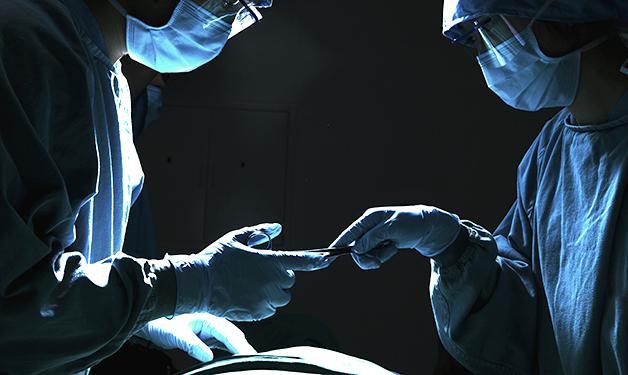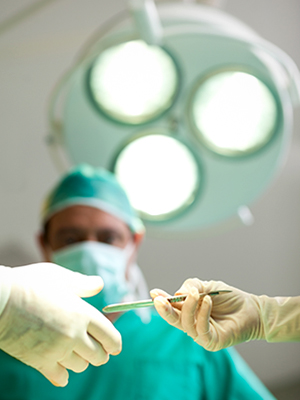
Less injury to transplanted organs and greater survival rate seen in a novel murine model.
Pairing a donated organ with a potential recipient is a critical task requiring a near-perfect match. The necessity for such perfection is highly limiting, and for the thousands of Canadians waiting on transplant lists it can understandably diminish any hope of getting better or even surviving. However, a study co-authored by Vancouver Coastal Health Research Institute scientist Dr. Caigan Du holds promise that in the future, the use of stem cells during the transplant process may eliminate the need for a perfect match.

Published in the October 2014 issue of Lung, Dr. Du and his colleagues’ study details use of a novel murine model and the intravenous delivery of mesenchymal stem cells (MSCs) to lung transplant recipients before transplantation to find whether MSCs could protect lungs from cold ischemia reperfusion injury (IRI). Cold IRI is inevitable damage that happens to transplanted organs during two processes: first, when the donor organ is cooled and, second, when blood flow is returned once the organ is transplanted into the host’s body (i.e. reperfusion). IRI is a major cause of failure for newly transplanted lungs and immune cells are thought to mediate the injury that happens during reperfusion.
“With our work, we’re trying to reduce injury even before the organ has a chance to try functioning because that would allow for donated organs to be given to recipients who aren’t a perfect match,” says Dr. Du, an assistant professor in the Department of Urologic Sciences at the University of British Columbia.
Understanding that stem cells can run down, or suppress, the immune response, the researchers sought to determine whether MSCs could stop the host’s immune cells from damaging the new lung when blood flow returned.
“When a host receives a new lung that has been kept cold, reperfusion brings with it oxygen but also immune cells that can activate the host’s immune system,” he explains. “This can cascade into a process that damages the organ because the immune response starts fighting it as though it’s a foreign entity.”

The researchers found that by administering MSCs to the lung recipient prior to transplantation, reperfusion injury to the transplanted lung was reduced. Furthermore, survival rates and lung blood oxygenation levels among MSC-recipients fared better than for those that did not receive stem cells. Intravenously delivered MSCs effectively improved function of the transplanted lungs.
“We essentially prepped the body so it was better able to accept the lung,” Dr. Du says.
Further research is needed to understand exactly what other roles, besides immune system suppression, stem cells may play in aiding the transplantation process and how they may also help with organ tissue repair. Even though additional evidence and knowledge is required before moving into human pre-clinical or clinical trials using stem cells in organ transplants, the study offers hope for more successful lung transplants in the future and less dependence on perfect matches.
“The big challenge with lung or other transplants is that we don’t have enough donors,” says Dr. Du. “If we’re successful in this line of research, we can increase the donor pool to help more people who may need organ transplants in the future.”


